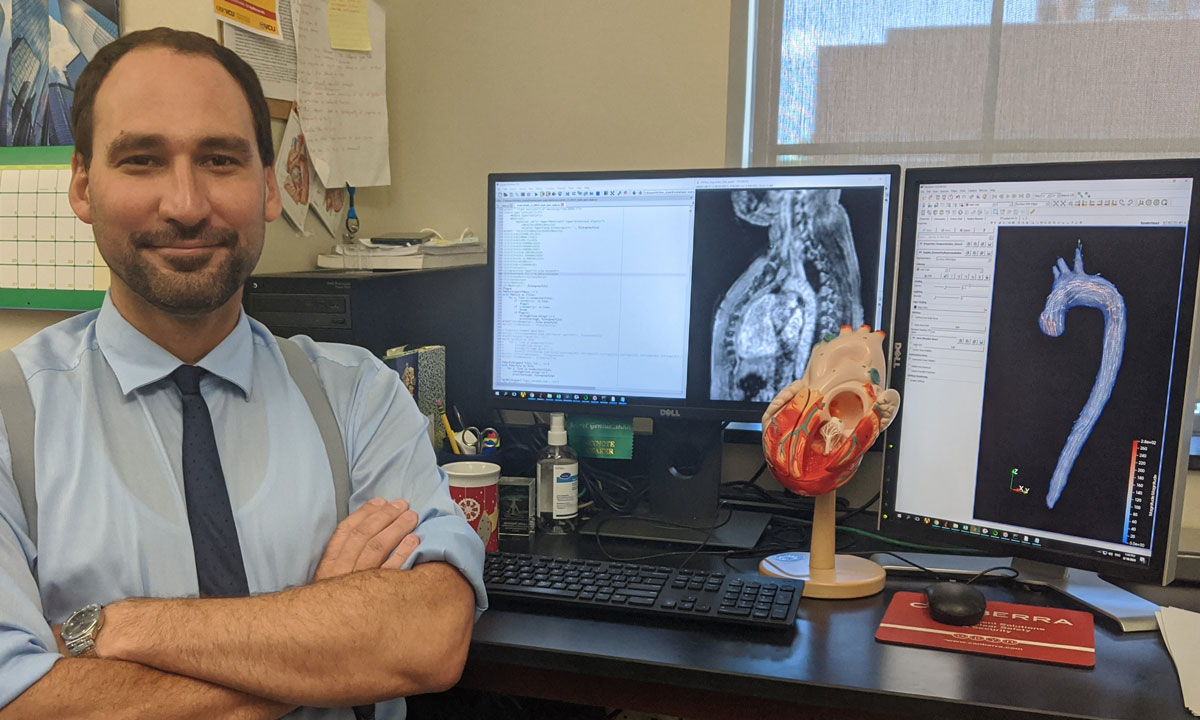The American Society of Mechanical Engineers (ASME) has awarded the James Truchard Scholarship for 2020-21 to Johane Bracamonte, a doctoral student in VCU’s Department of Mechanical and Nuclear Engineering. This marks the first year ASME has awarded this scholarship, which was funded by the founders of National Instruments Corporation.
Bracamonte’s adviser is João Silva Soares, Ph.D., assistant professor of mechanical engineering.
“Johane is an excellent mechanical engineer and a very promising young scientist. He joined my lab in 2018, coming with a master’s in mechanical engineering from Central University of Venezuela. Despite this being his first experience abroad, he established himself rather quickly as a valuable member of our laboratory,” Soares said. ”Johane’s performance as a Ph.D. student has been outstanding – he is very responsible, proactive and always willing to accept new challenges. He has also shown excellent leadership and teaching skills, assuming mentorship of several of our undergraduate researchers.”
The $10,000 scholarship award will allow Bracamonte, who has been a teaching assistant since 2018, to focus full-time on his research in Soares’ Engineered Tissue Multiscale Mechanics and Modeling (ETM³) Laboratory.
Bracamonte’s work centers on methods to better understand the biomechanics of the cardiovascular system. He also participates in the lab’s work to develop engineered tissue vascular grafts.
One of his current projects is creating digital models and metrics that show how tissues behave when congenital heart disease is present. These tools provide detailed, predictive maps of the movement of arteries and blood vessels, stiffness of blood vessels and other factors that help researchers and clinicians understand the onset and progression of cardiovascular disease.
Bracamonte is using anonymized medical magnetic resonance imaging (MRI) data from the Children’s Hospital of Richmond, along with numerical simulations, to build models doctors can use in surgery planning.
“We don’t know anything about the patients, of course, because, by law, the data must be anonymized,” Bracamonte said. “But when the doctors let us know later that things went right, and how useful the model was — well, it is just super gratifying.”
The scholarship, he said, will help him expand his research capacity in at least two ways. It will free up funds to upgrade some of the computer resources used in his modeling.
“I have a really good computer at the lab, but when I'm running these simulations, all the capacity is occupied doing these calculations,” Bracamonte said. “Basically, if I try to do anything else, it will crash.”
The scholarship will also free up the time he has been devoting to being a teaching assistant. Bracamonte is more ambivalent about this transition.
“I love being a teaching assistant. I want to become a professor, and teaching is a big part of why,” he said. “But having a couple of semesters to focus entirely on my work in the lab is a great opportunity. My most yearned for professional goal is to have a significant impact on technology developments. It goes without question that I will use my education to make a difference.”
